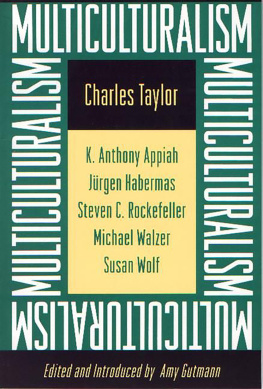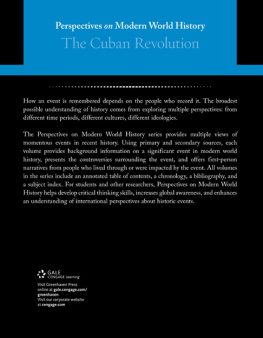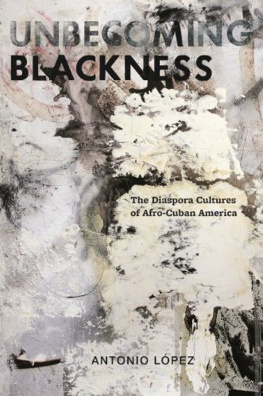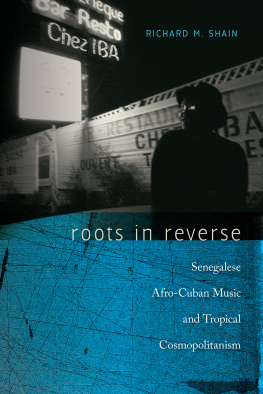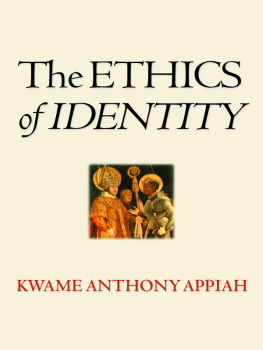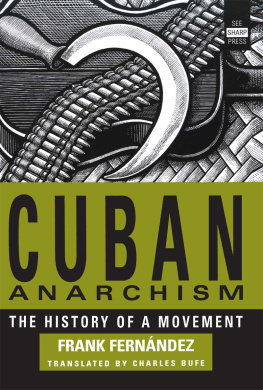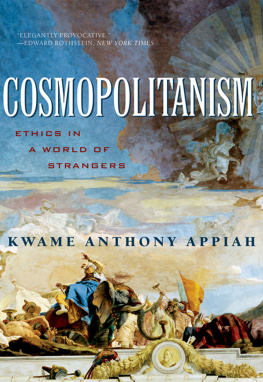Contents
Guide
Pagebreaks of the print version
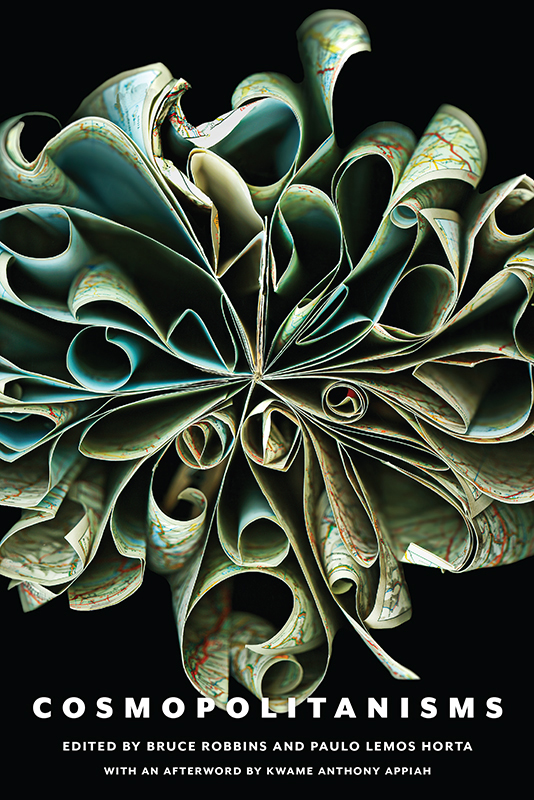
COSMOPOLITANISMS
Cosmopolitanisms
Edited by Bruce Robbins and Paulo Lemos Horta
With an Afterword by Kwame Anthony Appiah

NEW YORK UNIVERSITY PRESS
New York
www.nyupress.org
2017 by New York University
All rights reserved
References to Internet websites (URLs) were accurate at the time of writing. Neither the author nor New York University Press is responsible for URLs that may have expired or changed since the manuscript was prepared.
ISBN: 978-1-4798-2968-2 (hardback)
ISBN: 978-1-4798-6323-5 (paperback)
For Library of Congress Cataloging-in-Publication data, please contact the Library of Congress.
New York University Press books are printed on acid-free paper, and their binding materials are chosen for strength and durability. We strive to use environmentally responsible suppliers and materials to the greatest extent possible in publishing our books.
Manufactured in the United States of America
10 9 8 7 6 5 4 3 2 1
Also available as an ebook
CONTENTS
ACKNOWLEDGMENTS
We are grateful to Hilary Ballon for several texts that originated as talks in a series she organized at 19 Washington Square, given by Craig Calhoun, David A. Hollinger, Walter Benn Michaels, and Jeremy Waldron. And we are indebted to Robert Young for the contributions by Homi Bhabha, Achille Mbembe, and Emma Dabiri. Errol Elshtain graciously granted permission for us to include Jean Bethke Elshtains essay. Leela Gandhis essay grew out of a collaboration with Practice International, a group of artists and curators.
Many thanks to Eric Zinner at NYU Press for championing this volume and his formidable team, in particular Alicia Nadkarni. We would also like to thank Carmen Germaine and Katherine Delia James for their editorial work on this volume. We would like to acknowledge the support of the NYU Abu Dhabi Institute, in particular Reindert Falkenburg, Philip Kennedy, and Gila Bessarat-Waels. Special thanks to Amanda Anderson, Kerry Barrett, Martin Klimke, Nils Lewis, Isabella Peralta, and Helen Small.
This publication is supported by a grant from the NYU Abu Dhabi Institute, a major hub of intellectual and creative activity, and advanced research. The institute hosts academic conferences, workshops, cultural events, and other public programs, and is a center of scholarly life in Abu Dhabi, bringing together faculty and researchers from institutions of higher education throughout the region and the world.
Introduction
BRUCE ROBBINS AND PAULO LEMOS HORTA
When I was growing up, strangers would ask me, Where are you from? Thus begins Cyrus Patells Emergent U.S. Literatures: From Multiculturalism to Cosmopolitanism in the Late Twentieth Century (2014). The old cosmopolitanism was a normative ideal. Less an ideal than a description, the new cosmopolitanism merely assumes that wherever and whenever history has set peoples in transnational motion, sometimes very forcibly, it is to be expected that many of them and their descendants will show signs of hybrid identity and interestingly divided loyalty. In cosmopolitan circles, self-identification is increasingly assumed to be optional rather than mandatory. Cosmopolitan politeness discourages strangers from demanding to know where one is from.
The shift Hollinger described was from cosmopolitanism in the singularan overriding loyalty to and concern with the welfare of humanity as a wholeto cosmopolitanisms, plural, which were now seen to be as various as the sociohistorical sites and situations of multiple membership from which they emerged and which were therefore the business of social sciences like anthropology, sociology, and history rather than a topic reserved for political theory and moral philosophy. By this point, one might almost say that cosmopolitanism would look naked without that final s. Instead of an unhealthily skinny ethical abstraction, we now have many blooming, fleshed-out particulars. And yet the triumph of the descriptive plural over the normative singular opens up as many questions as it answers. First of all, it forces us to ask what or how much these variants have in common with each other. Second and more pressing, especially as we move away from the culture wars of the 1990s that inspired Hollinger and further into the twenty-first century, there is the question of how much of the concepts old normative sense is preserved or transformed by these empirical particulars. What is it exactly that makes them interesting, makes them valuable? To put this another way: can we really separate the new from the old, the plural from the singular? If the new protocols of cosmopolitan politeness discourage questions about identity in metropolitan centers, the populism of Brexit and Donald Trump bring these questions to the fore once more. And the controversies send us back to some of the most ancient thinking on the subject.
Where are you from? The word cosmopolitan was first used as a way of evading exactly this question, which can of course be underhandedly confrontational and even dangerous. When Diogenes the Cynic called himself a kosmo-polites, or citizen of the world, he was preferring not to say that he was from Sinope, a distant Greek colony on the Black Sea from which he had been banished, as the questioner perhaps knew, for alleged misconduct involving the local coinage.
In its founding moment, then, one might say that cosmopolitanism was already plural. Any given version would display a distinct mixture of two impulses, negative and positive. The negative impulse asserts detachment from ones place of origin or residence, a refusal of the jurisdiction of local authorities, a stepping outside of conventions, prejudices, obligations. The positive impulse asserts membership in some larger, stronger, or more compelling collective. For Diogenes, this seems to have been the kosmos, meaning perhaps the world or the universe. An obvious logic links the two impulses: my chances of squirming out of the grip of local interrogators increase if I can declare myself subject to a higher authority, ideally an authority they recognize. But the logic may only be latent; it is unclear that a higher authority is always necessary. Since Diogeness works were lost, it is not known whether he ever clarified what he meant by kosmos. Perhaps it meant something like nature. Anecdotes about the Cynic philosopher tend to dramatize his cheery noncompliance. They offer no evidence that his disobedience relied upon metaphysical accreditation, human or divine.
Traditional definitions may tend more to the positive or negative, but they usually agree on some degree of synthesis: cosmopolitanism as a commitment to the good of humans as a whole that overrides all smaller commitments and creates a habitual detachment from the values of the locality. Perhaps inevitably, cosmopolitanism has been or at least has looked like a badge of privilege. As mentioned above, this singular, normative account has been gradually if only partially displaced since the late 1980s by a plural, descriptive understanding. According to the new understanding, cosmopolitanism can be defined as any one of many possible modes of life, thought, and sensibility that are produced when commitments and loyalties are multiple and overlapping, no one of them necessarily trumping the others. This shift from a normative to a descriptive register has meant that there are more kinds of cosmopolitanism out there to be observed and explored, both in the present and in the past, and perhaps also a greater absolute quantity of cosmopolitanism. It has meant that social scientists, cultural critics, and historians could stake claims to a concept that had seemed to belong largely to philosophers and political theorists. And most important, it has meant that instead of being the prerogative of a few heroic figures like Diogenes, cosmopolitanism has come to be seen as a characteristic and possession of substantial social collectivities, often nonelite collectivities that had cosmopolitanism thrust upon them by traumatic histories of dislocation and dispossession. It became possible to speak, in Silviano Santiagos resonant phrase, of the cosmopolitanism of the poor.


